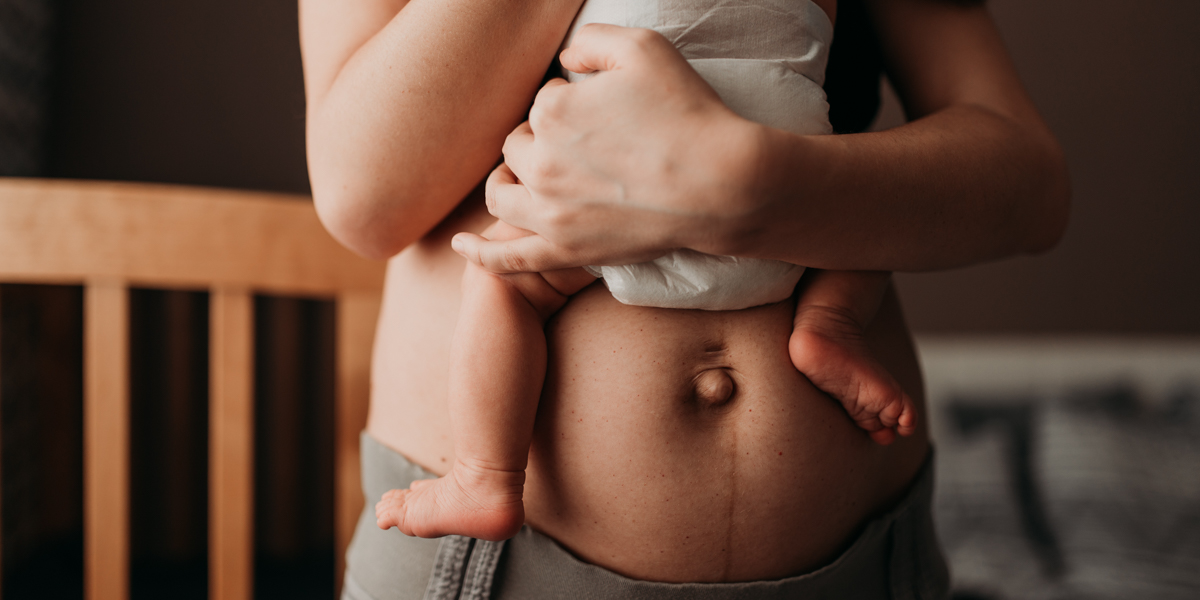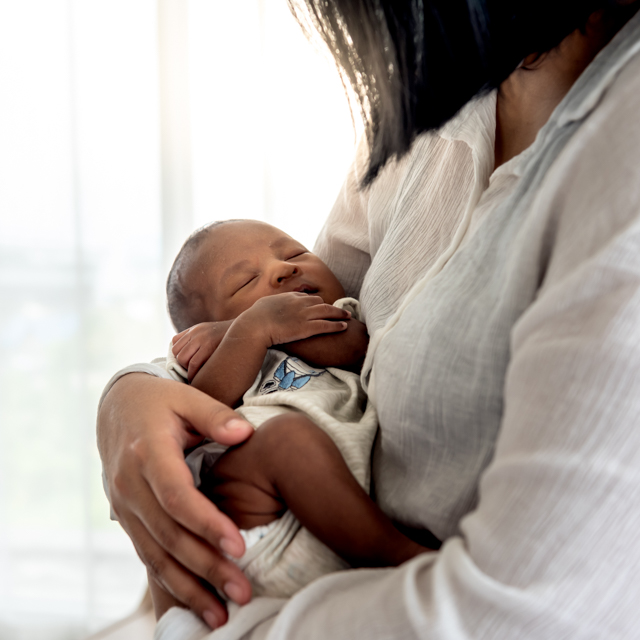Postpartum recovery: an overview
Whether you have a vaginal birth or a C-section, you will need time to rest and take care of yourself after delivery. Postpartum recovery is just as important as any other item on your checklist.
“The labor and delivery process is going to put your body through a significant amount of stress,” said Dr. Soha S. Patel, a Vanderbilt Health maternal-fetal medicine physician specializing in high-risk pregnancy care. “We cannot emphasize enough that rest and recovery are very important after delivery.”
It’s also normal to not feel quite like yourself emotionally after giving birth. But there’s a big difference between postpartum depression and the more common “baby blues.” Postpartum depression is a serious mental health concern that shouldn’t be ignored. Learn to spot the warning signs of postpartum depression below so you can get the help you need.
What to expect after a vaginal delivery
After a vaginal delivery, your health care provider will likely recommend you stay in the hospital for one to two nights. Immediately after giving birth, you will be checked often for things like:
- Pain: Some abdominal pain is normal. It may feel like cramps as your uterus begins to shrink to its normal size. Your perineum may also be painful or swollen. For the first 24 hours, you can put an ice pack wrapped in a clean cloth on the area for 10–20 minutes at a time.
- Temperature and blood pressure. Your vital signs will be monitored until they are stable.
- Anesthesia response: Your health care team will ensure you regain feeling and can move your lower legs and feet.
- Bleeding: The lining of your uterus will start to come out as bloody vaginal discharge. Your team will provide sanitary pads and other postpartum essentials like witch hazel cooling pads for pain relief and a peri bottle to use as a portable bidet. They’ll also make sure you aren’t bleeding too heavily — bleeding after birth shouldn’t soak through a pad in under an hour.
What to expect after a C-section
After a cesarean delivery, or “C-section,” you will likely stay in the hospital for two to three nights. During your stay, your health care team may give you medicine through an IV that you control, known as a patient-controlled medicine, and/or oral pain medication. Your health care team will be monitoring you as your anesthesia wears off and will be looking for signs of some of the risks associated with having a C-section, such as:
- Bleeding
- Infection
- Injury to other organs near the uterus
- Blood clots
Cramping and bleeding after a C-section is normal for several days after birth, and it can take up to 6 weeks for the incision to heal. Once you’re home from the hospital, make sure to follow your provider’s discharge instructions and give yourself lots of time to rest.
Postpartum incontinence
About one-third of those who have a baby will experience some form of postpartum incontinence. Two types of postpartum incontinence exist: stress and urge.
“Stress incontinence is when women involuntarily leak urine when they laugh, cough, sneeze or stand up — anything that increases abdominal pressure,” said Dr. Chelsea Fechter, an OB-GYN with Vanderbilt Women’s Health. Urge incontinence is when the urge to urinate comes on suddenly and someone can’t make it to the bathroom in time, she said. Of the two types, stress incontinence is more common after pregnancy.
“As you can imagine, when you give birth, when you push for long periods of time, it stretches the pelvic floor muscles that are responsible for keeping urine inside the bladder,” Fechter said.
Treatment options will depend on the type of incontinence someone is experiencing but can range from pelvic floor exercises to avoiding irritants like caffeine and spicy foods.
Explore more about Women’s Health

Pelvic floor physical therapy: dispelling rumors, creating understanding

When to get a Pap smear and when it can wait

Midwifery care before and after childbirth
Postpartum mental health
After giving birth, your body and your family have just gone through some major changes. The stresses of life and your hormonal changes can make you feel like you’re on top of the world one minute and like things are crashing down around you the next.
Temporary, depression-like symptoms — the “baby blues” — can develop about two to three days after giving birth, said Dr. Anna W. Morad, a pediatrician and director of the Newborn Nursery at Monroe Carell Jr. Children’s Hospital at Vanderbilt. “You might feel sad, on edge, or upset with those around you — even your new baby. You might even question whether you are cut out for motherhood. Rest assured that these feelings are normal and will pass in a few days or a couple weeks.”
Postpartum depression symptoms develop later, last longer and are more serious. Symptoms can develop one to three weeks after childbirth or at any time throughout the first year. Postpartum depression lasts more than just a day or two and often requires medication.
Signs of postpartum depression
When considering whether you or someone you love has postpartum depression, look for:
- Low energy and disinterest in things you normally enjoy.
- Eating or sleeping more or less than usual.
- Not feeling happy even with happy moments.
- Feeling guilty and blaming yourself even when small things go wrong.
- Feeling anxious and nervous about things out of your control (such as the health of your baby).
- Thoughts of harming yourself or your baby.
What causes postpartum depression? It’s more common if you have a history of depression before pregnancy, but can also be related to stress, hormonal changes, fatigue from a difficult pregnancy or delivery, and a number of emotional factors. If your symptoms persist, Morad advises leaning on your support team for perspective, help and treatment. Very rarely, new birth parents can experience postpartum psychosis, a serious mood disorder which can cause a person to lose touch with reality. Postpartum psychosis is a medical emergency, and it is vital to call your health care provider to get help immediately.
Postpartum fertility and birth control
Whether you’re trying to plan the timing of your pregnancies or are done having children, it’s important to know how soon after delivering a baby you will need contraception (birth control) and what type of postpartum birth control is best for you and your family.
Dr. Elise Boos, an OB-GYN with Vanderbilt Women’s Health, explains fertility and contraception in the days and weeks after giving birth. “I tell people that if they’re not using a birth control method, it’s possible to become pregnant very soon after having a baby,” Boos said. “You can’t reliably use the return of menstruation as an indicator that your fertility has returned.”
If you’re not feeding your newborn exclusively by breastfeeding, ovulation is likely to start again within a few weeks of giving birth. Ovulation happens before you get a menstrual period, so it’s possible to become pregnant again before having your first period after baby, whether you are breastfeeding your infant or not.
Birth control resources from our experts

All about postpartum birth control
It’s possible to get pregnant again before your first period after giving birth. Details about safe contraception.

Tubal ligation: weighing the pros and cons
What to know if you’re considering sterilization.

What to know about long-acting reversible birth control
IUDs and implants are the most effective birth control types. How they work.
Breastfeeding support
If you choose to breastfeed your baby, a support group may be of benefit — whether you’re new to breastfeeding or are in the process of breastfeeding your second, third or fourth child. A breastfeeding support group covers a range of topics, including latching, pumping, breastfeeding supplies, milk storage, traveling, weaning and more.
A support group is intended to foster camaraderie by celebrating triumphs, offering a safe space to vent frustrations, and providing constructive advice or feedback when needed. Typically, a breastfeeding support group has a designated facilitator who helps ensure that everyone’s voice is heard.
Ask your OB-GYN or lactation consultant for recommendations of breastfeeding support groups in your area.




